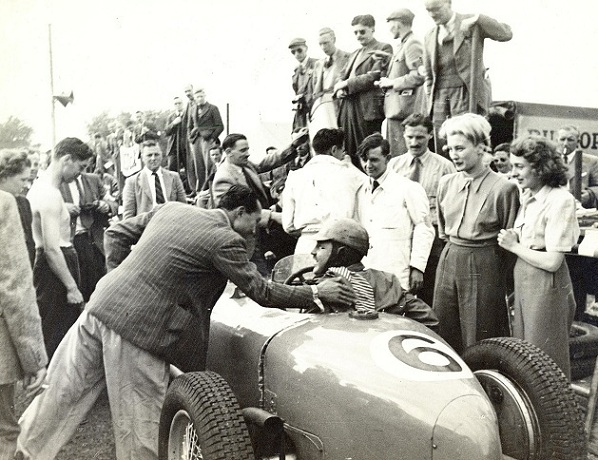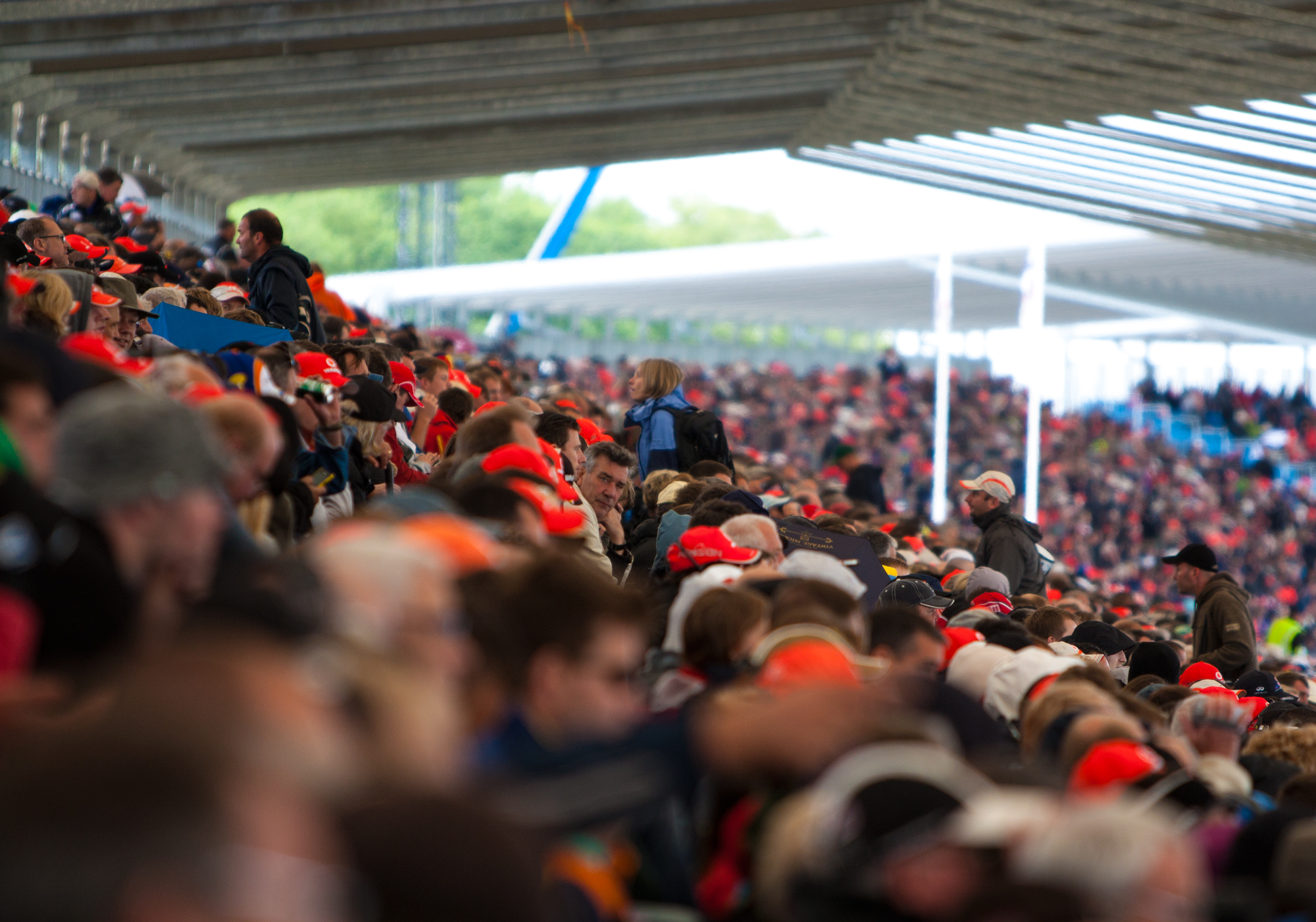It being the Tuesday evening following the race, the dust has well and truly settled approaching the corner where Mark Webber and Sebastian Vettel clashed during the Turkish Grand Prix. The controversy, however, continues to rage. It is widely acknowledged amongst fans and journos alike that the incident was the fault of Sebastian Vettel, so why is there still doubt? During the fraught fall-out after the race, who said what, and when? And what consequences might all this have for the Red Bull team?
It was lap 40 when a visibly fast Sebastian Vettel feinted right, then swept left to take Mark Webber along the back straight of the Istanbul Park track. Vettel had, by dint of being careful with fuel early on in the race, the advantage of more revs than his team-mate. And so he came by, but was not sufficiently in front of Webber before making the move right across, to take the racing line for the left-hander hairpin coming up. Webber, whether through surprise or calculation, did not get out of the way. They collided, ending Vettel’s race and losing Webber the victory.
Polls show 80% of fans believe that Vettel was at fault for the accident. He was not far enough in front to make the move across that he did, and would have required Webber to take evasive action. Webber was not going to take that action, because he was leading the race, and avoiding a team-mate’s sudden move across you would be tantamount to giving Vettel the gift of the race (and possibly the de facto number one spot in the team). Although Vettel caused the accident, we could say Webber failed to avoid it. He is not, then, completely devoid of responsibility for the crash. But to the vast majority of observers, the lion’s share of the blame must lie with the young German.
Christian Horner, in the heat of the immediate aftermath, failed to apportion blame for the incident. At this point he must have thought Vettel to blame, but realised that publicly to condemn his younger driver would not be the best thing to do. So it was an angry headmaster who spoke to the press first. But what was to come was more curious.
Horner’s later interview was expected to calm the waters, maybe alluding to the exuberance of youth. Instead, we got this. ”Seb managed to save an extra kilo of fuel, both cars started with the same fuel, so he had one more lap of the optimum engine mode, if you like. We could not tell him to back off because he was under pressure from Hamilton behind. The large mistake was that not enough room was given. We always ask drivers to give each other room, but we handed 43 points on a plate to McLaren. We had two guys racing hard, but you ask that they give each other space.”
The highlighted sentence is key to understanding the Red Bull hierarchy’s view of the episode. When a driver is overtaking another, it is not the overtaker who must give the room, but the victim. To Horner’s eyes, it was a serious failing of Webber that he did not give Vettel the space he needed to overtake him. This seems mind-numbingly blinkered, because they ought really to have known that Webber would not swerve out of Vettel’s way.
But their view becomes more understandable when it is given some context. Vettel had saved fuel and was thus quicker than Webber. Everybody on that Red Bull pitwall expected him to be able to overtake Webber and then take the one-two, in Vettel-Webber order. The alternative would have been to slow the charging Vettel, and leave him vulnerable to Hamilton. To Red Bull, then, Webber not avoiding the crash was an act of petulance.
This slightly unorthodox idea was confirmed later, when Dietrich Mateschitz’s right-hand man and (some say) mouthpiece Helmut Marko gave his view, as quoted by Adam Cooper. “Mark for whatever reason was slower. He was getting lap by lap slower, and Vettel was getting faster and was coming under enormous pressure from Hamilton. So if he [had] stayed behind Mark, he would have been overtaken. So he had to do something. And Mark knew that he was slower, so he should have let him past.
“We have to talk with all the people involved and make sure it doesn’t happen again, because we still could have been one-two. Until this incident, everything worked perfectly, our team did really well with the pit stop planning and everything.â€
This pro-Vettel, tinted-glasses perspective is odd, to say the least. It ignores the fact that Webber’s role in the coming-together could only ever be described at the very worst as passive. It also ignores the racing driver’s first instinct, which is to win the race, not to let a faster team-mate by. It also raises all sorts of questions about the environment within Red Bull, and Webber’s place in their world-view.
It is always tempting for journalists and fans alike to subscribe to conspiracy theories, a number of which have been doing the rounds since Sunday. The most popular, and therefore probably the wackiest, is that there is a Austro-German axis inside the team which seeks to see Vettel crowned champion. (It is sad to note that occasionally these theories about non-British drivers carry more than a subtle hint of Little Englander xenophobia). The idea that Vettel is being preferred because he is German is palpable nonsense.
More convincing, though, is the scenario that Vettel is being preferred because he is a) younger, b) better (when judged on career results) and c) more of a Red Bull product than Mark Webber. There is no doubt that the youngster is in the sport for the long term, and would sooner or later crop up in the same breath as Ferrari were he not to succeed at Red Bull. This gives them every incentive to hold onto him. They also clearly reckon that he is a better championship prospect than Webber, who, for all his recent form, has never set the world alight. Thirdly, many other onlookers have remarked that it is Vettel who is the darling of the Red Bull publicity, and it is perfectly conceivable that he fits their brand image more than an Australian approaching his forties.
So are Red Bull favouring Vettel? In terms of machinery, perhaps. In terms of support, probably. The sums add up. Before the Turkish race, all were on tenterhooks to see how well a Vettel shorn of excuses would deal with Webber’s dominance. Now, the more pressing issue is how well Webber will cope with being de facto number two in a team whose car he has done arguably the most to develop and hone.
Red Bull will need all of their man-management and media skills to defuse the explosive situations that lie ahead. The worst-case scenario, and some would say the likeliest, is that infighting at Red Bull might cause them to lose the championship to another team, a la McLaren in 2007. But this is a long way from happening. For one thing, the faster driver is always the number one. Webber has been that recently, so all he needs to do is keep on doing well. Secondly, if Webber can win another race or two with Vettel doing badly, the Australian would start to get close to the hallowed state of mathematical favourite. Thirdly, I don’t think Vettel wants to race a number two. I think he’d rather beat Webber, just as he always has done up until recently, on the track. Some have pointed out that his reputation would suffer if Webber was a compliant team-mate.
The plot got much thicker this weekend. Do not expect either of the Red Bulls to give up.






